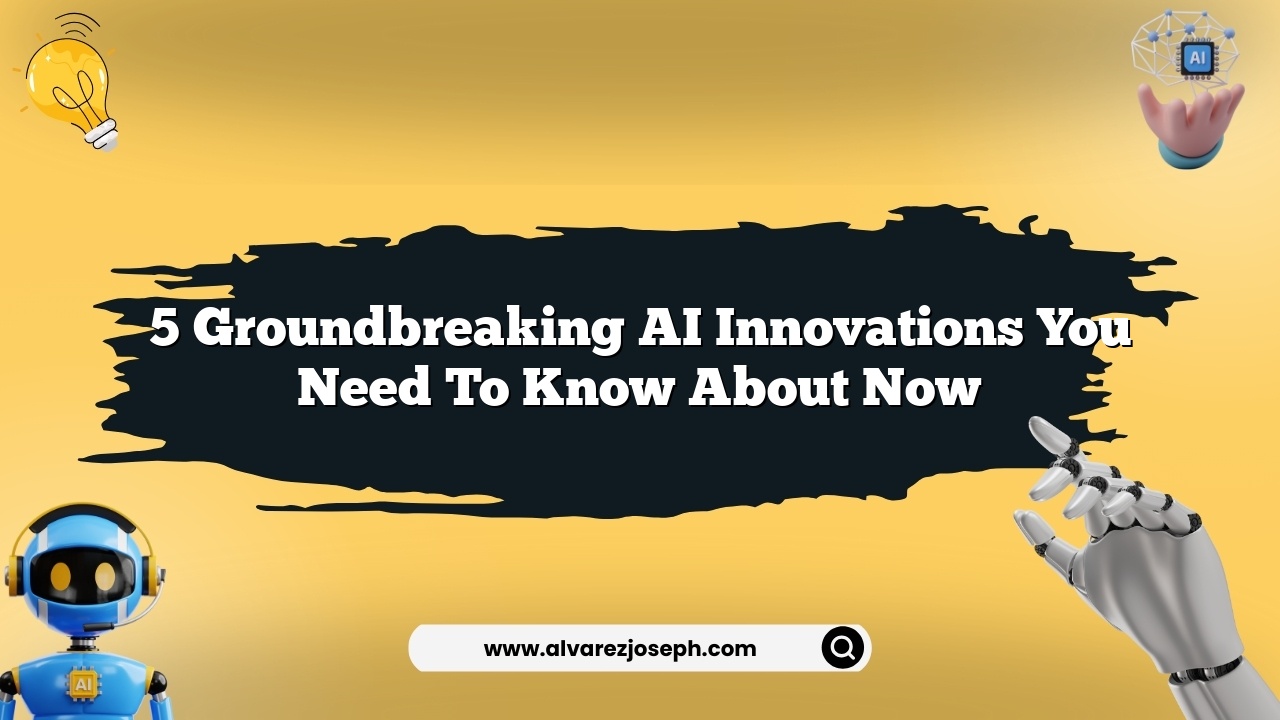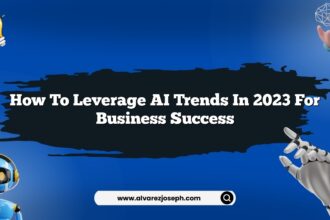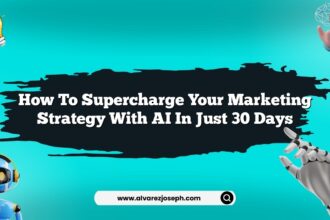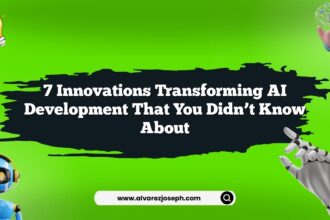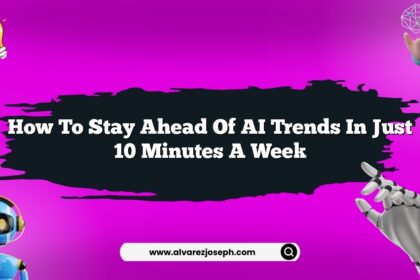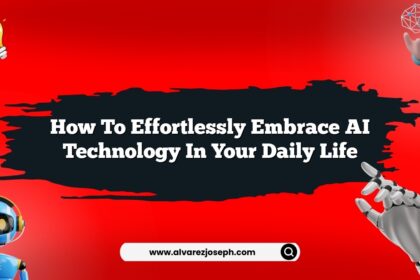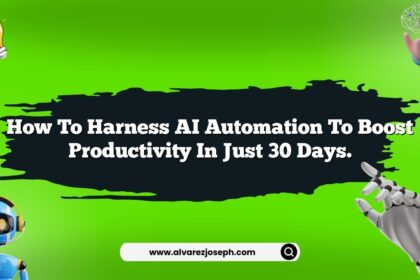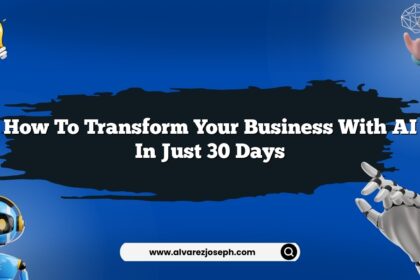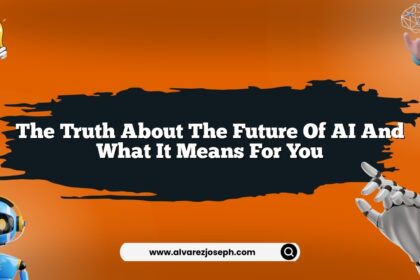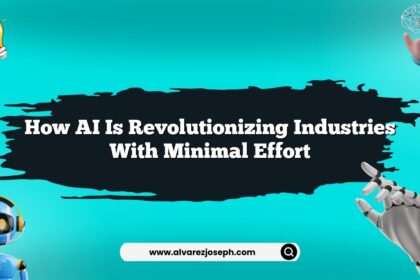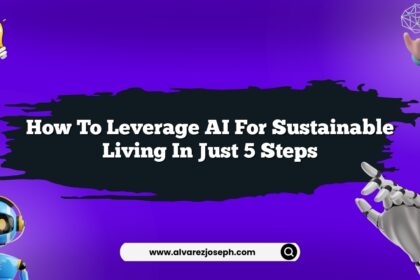Have you ever thought about how quickly technology is advancing? Like, one minute we’re figuring out how to send a text message, and the next, we’ve got AI doing everything from driving us around to writing our emails. It’s wild! But here’s the kicker: some of the innovations popping up right now are downright game-changers. I’m talking about stuff that’ll not only get your attention but also make you rethink what’s possible with AI.
Let’s dive into five groundbreaking AI innovations that you absolutely need to know about. Trust me, this isn’t just tech jargon. These are real developments that could shake things up in ways we haven’t even imagined yet.
1. AI in Healthcare: The Diagnostic Powerhouse
Okay, let’s start with healthcare. Imagine you walk into a doctor’s office. You’re feeling under the weather, and instead of waiting around for a few hours, a smart AI tool zips through your symptoms, medical history, and even current trends in medicine to give a diagnosis. Sounds like science fiction, right? Yet, that’s where we’re heading.
What’s cool here is that AI can analyze medical images like X-rays, MRIs, and CT scans with a precision that can outshine human doctors. I mean, we’re talking about deep learning algorithms capable of detecting anomalies that might fly under the radar for a busy human eye. There have been studies that suggest AI can outperform radiologists in identifying certain conditions… which is both impressive and a bit scary.
But here’s the catch… not all AI systems are created equal. Some have been criticized for lacking transparency, making it hard for doctors to trust them. What’s the point of having this high-tech system if we can’t figure out how it came to its conclusions? I’m all for tech advancements, but let’s not kid ourselves — we need to make sure it helps us, not just complicates things.
2. Generative AI: Creativity Unleashed
Now, let’s talk about generative AI. This tech can create content, be it text, images, or even music, that looks like it’s made by a human. I’m not exaggerating when I say it’s kind of mind-blowing. Imagine you need a logo for your new startup — boom! Generative AI can whip up a handful of designs in seconds.
You can also use it to draft articles, craft social media posts, or generate unique stock photos! Some companies are even using it to produce complete songs. Pretty cool, right? But let’s not be naive here. Generative AI has its issues, especially when it comes to originality. There’s a fine line between inspiration and copying, and the last thing we need is a world where every piece of art feels like a remix of the last.
There’s also the ethics side of things. Who gets credit for the art? The AI? The programmer? The person who asked it to create something? It’s a sticky situation, and we need to navigate it carefully… because the last thing we want is more confusion in an already complex digital landscape.
3. AI in Education: Personalized Learning
Education is one area where AI is starting to shine. Picture this: a classroom filled with students, and instead of one-size-fits-all teaching, each student has an AI tutor tailored to their unique needs. It’s not just a fantasy anymore.
AI can analyze how a student learns and adjust the material accordingly. If someone struggles with math, the AI can offer extra practice problems or even switch to a more visual approach. It’s all about meeting students where they are. Imagine how many kids could thrive in such an environment! But let’s be real for a second.
While this sounds fantastic, we can’t ignore the challenges. Not every school has the resources to implement this tech. Plus, there’s the question of data privacy. Are we comfortable with AI gathering and analyzing data on our kids’ learning habits? It’s a concern that needs to be taken seriously.
4. AI-Powered Robotics: The New Workforce
Now, robotics is another sector going through a serious transformation thanks to AI. We’re not just talking about robots that vacuum your floor (though those are cool). Nope. I’m talking about advanced robots that can perform complex tasks.
For instance, Boston Dynamics has been developing robots that can navigate through challenging environments, helping in situations like disaster relief or even delivering packages. These machines can learn from their surroundings, making them incredibly adaptable.
But here’s the thing… while the potential is enormous, there are concerns about job displacement. If robots can do our jobs, what happens to everyone who relies on that work for a living? Are we heading toward a world where humans are sidelined? It’s a tough pill to swallow. We need to have a serious chat about this before it becomes a reality.
5. AI Ethics: The Conversation We Need to Have
Let’s wrap this up with the biggie: AI ethics. As we speed toward this high-tech future, we need to sit down and talk about the implications. With all these advancements, there’s a ton of power at play. And with great power comes great responsibility… or so they say.
Take facial recognition technology, for instance. It can be used for security, but it also raises massive privacy concerns. Are we okay with being constantly monitored? What about the risks of bias in AI systems? There’s an ongoing debate about how algorithms can perpetuate existing prejudices, which is something we need to tackle head-on.
So, as we embrace these groundbreaking innovations, let’s not forget to question and critique them. We can’t just accept things at face value. We should always be asking, “But at what cost?”
Quick Summary
- AI is transforming healthcare with advanced diagnostic capabilities, but transparency is key.
- Generative AI can create impressive content but raises ethical questions about originality.
- Education can be personalized through AI, but not all schools have the resources.
- Robotics are evolving to tackle complex tasks, but job displacement is a real concern.
- AI ethics need to be at the forefront of discussions surrounding new technology.
Frequently Asked Questions
What is generative AI?
Generative AI refers to algorithms that can create new content based on existing data. This can include text, images, music, and more. It’s like having a creative assistant that can whip up various creative pieces!
How does AI improve healthcare?
AI improves healthcare by analyzing vast amounts of data to assist in diagnostics, treatment plans, and even predicting patient outcomes. This helps doctors make better decisions and provide more personalized care.
What are the risks of AI in education?
The risks include data privacy concerns, unequal access to technology, and the potential for bias in AI algorithms. It’s crucial that we address these issues to ensure fair and effective education for all.
Can robots take over jobs?
Yes, robots can potentially take over certain jobs, particularly in manufacturing and logistics. However, they can also create new opportunities and roles in tech and management.
What are the ethical concerns regarding AI?
Ethical concerns include biases in algorithms, privacy issues, and the implications of surveillance technologies. It’s essential to develop guidelines to ensure responsible AI use.
How can I stay updated on AI advancements?
Staying updated on AI advancements involves following tech news websites, subscribing to AI-related blogs, and joining industry forums. Engaging with communities on social media can also keep you in the loop!
There you have it! The world of AI is evolving rapidly, and it’s more important than ever to stay informed. Whether you’re excited, skeptical, or just plain curious, the best thing we can do is engage with these innovations and ensure they serve us well. Let’s keep the conversation going!

